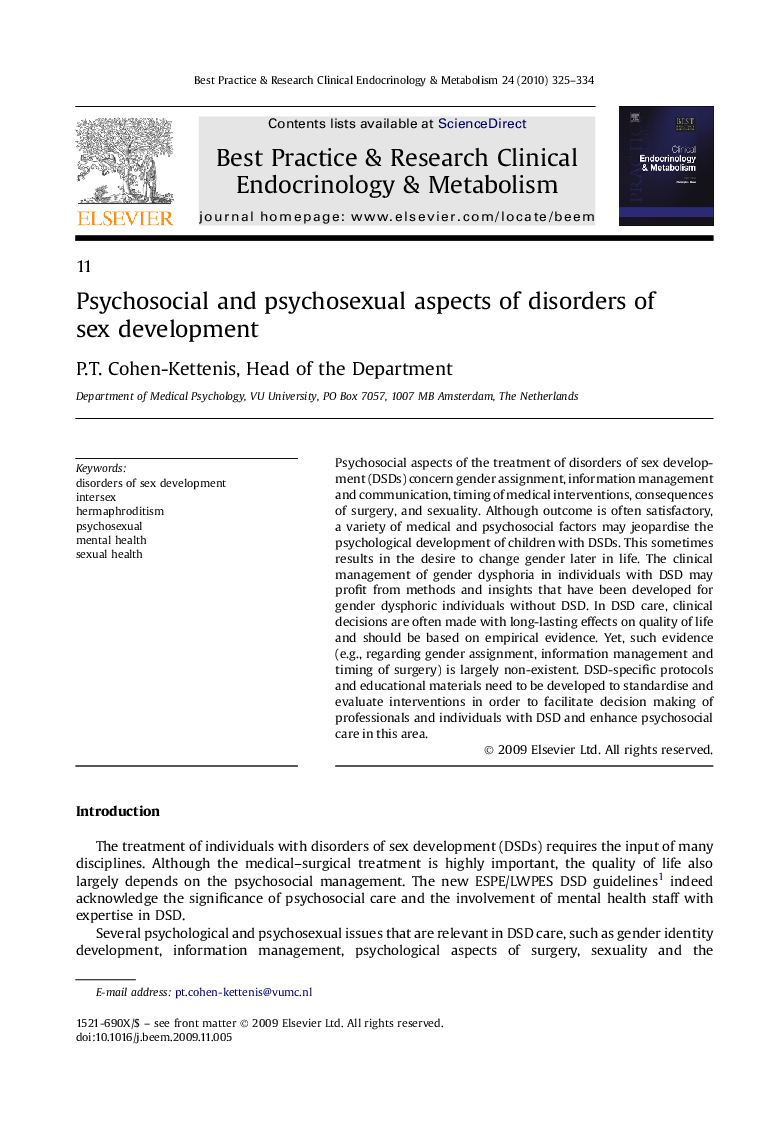| Article ID | Journal | Published Year | Pages | File Type |
|---|---|---|---|---|
| 5896580 | Best Practice & Research Clinical Endocrinology & Metabolism | 2010 | 10 Pages |
Psychosocial aspects of the treatment of disorders of sex development (DSDs) concern gender assignment, information management and communication, timing of medical interventions, consequences of surgery, and sexuality. Although outcome is often satisfactory, a variety of medical and psychosocial factors may jeopardise the psychological development of children with DSDs. This sometimes results in the desire to change gender later in life. The clinical management of gender dysphoria in individuals with DSD may profit from methods and insights that have been developed for gender dysphoric individuals without DSD. In DSD care, clinical decisions are often made with long-lasting effects on quality of life and should be based on empirical evidence. Yet, such evidence (e.g., regarding gender assignment, information management and timing of surgery) is largely non-existent. DSD-specific protocols and educational materials need to be developed to standardise and evaluate interventions in order to facilitate decision making of professionals and individuals with DSD and enhance psychosocial care in this area.
